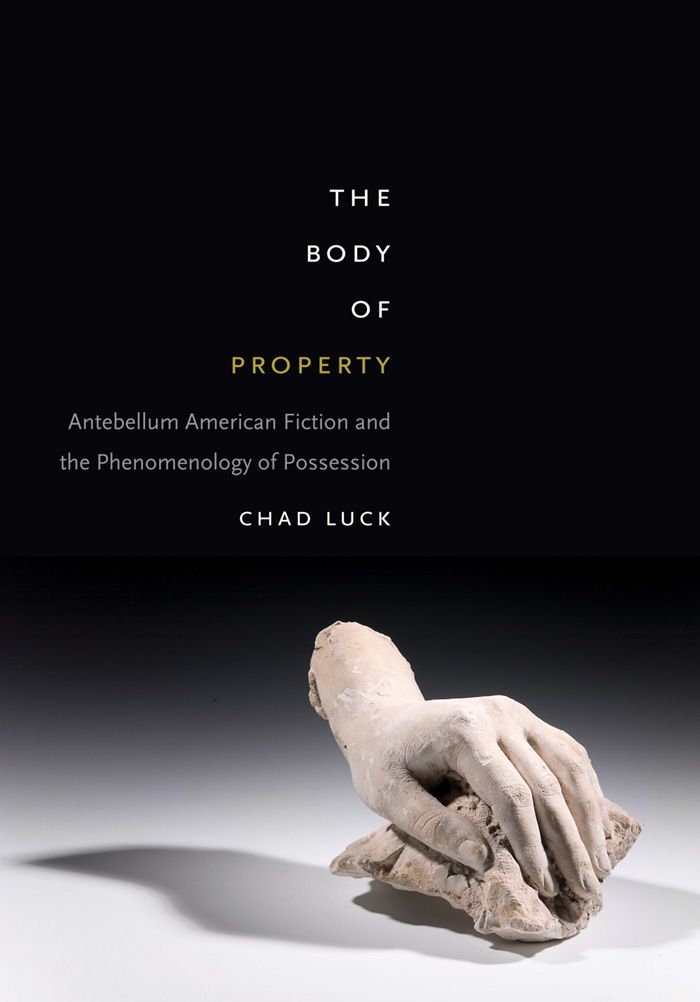The Body of Property
Antebellum American Fiction and the Phenomenology of Possession

This book can be opened with

What does it mean to own something? How does a thing become mine? Liberal philosophy since John Locke has championed the salutary effects of private property but has avoided the more difficult questions of property’s ontology. Chad Luck argues that antebellum American literature is obsessed with precisely these questions.
Reading slave narratives, gothic romances, city-mystery novels, and a range of other property narratives, Luck unearths a wide-ranging literary effort to understand the nature of ownership, the phenomenology of possession. In these antebellum texts, ownership is not an abstract legal form but a lived relation, a dynamic of embodiment emerging within specific cultural spaces—a disputed frontier, a city agitated by class conflict.
Luck challenges accounts that map property practice along a trajectory of abstraction and “virtualization.” The book also reorients recent Americanist work in emotion and affect by detailing a broader phenomenology of ownership, one extending beyond emotion to such sensory experiences as touch, taste, and vision. This productive blend of phenomenology and history uncovers deep-seated anxieties—and enthusiasms—about property across antebellum culture.
Luck's focus on the phenomenological experience of ownership in the early nineteenth century is new and revealing. Whether looking at the frontier romance, the urban gothic, the domestic novel, or the plantation narrative, Luck convincingly shows how changing notions of property were intimately linked to evolving notions of embodiment and selfhood.
Written with force and grace, The Body of Property shows how antebellum literature stepped in to address questions that legal thought largely evaded: how do we come to own a thing? Why does property require bodies? Offering us a 'phenomenology of possession' in authors ranging from Brown to Stoddard, from J. P. Kennedy to George Lippard, Chad Luck provides a genuinely new account of the cultural work undertaken by antebellum fiction, as it thinks through embodiment and possession in a range of social locations: frontier, parlor, plantation, cityscape. This is a terrific book, well-researched, theoretically nimble, and full of interpretive insight.
"Luck combines a truly impressive archive of antebellum writing, legal and cultural history, Enlightenment philosophy, and phenomenology with an innovative methodology to tell a new history of property in American literature and culture -- the history of what property feels like, from the body to the spaces of the home, the plantation, and the city.”

